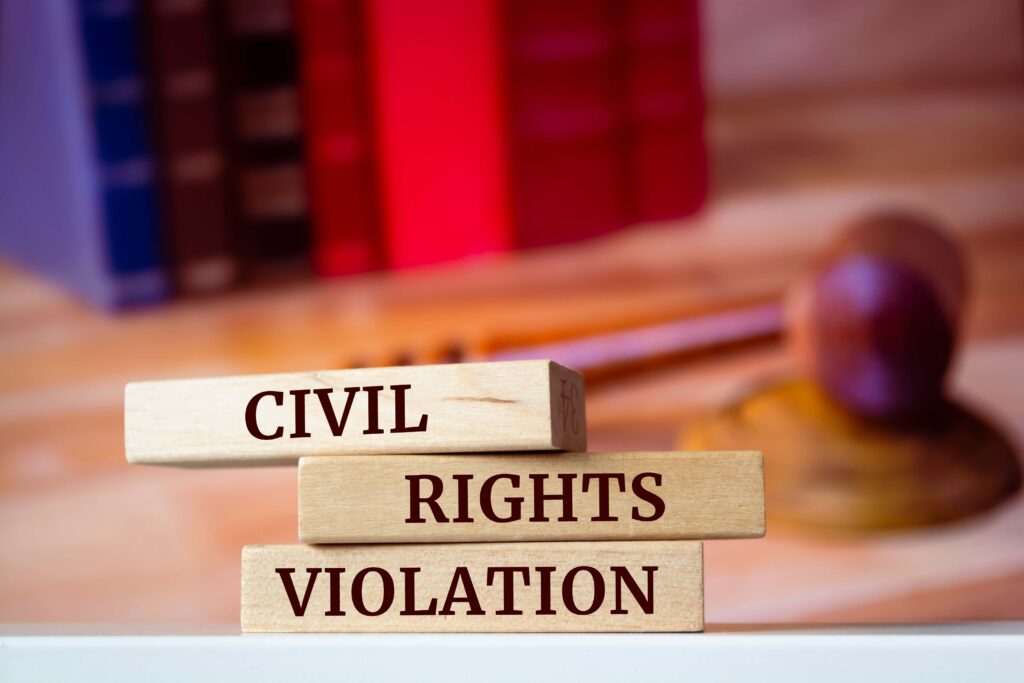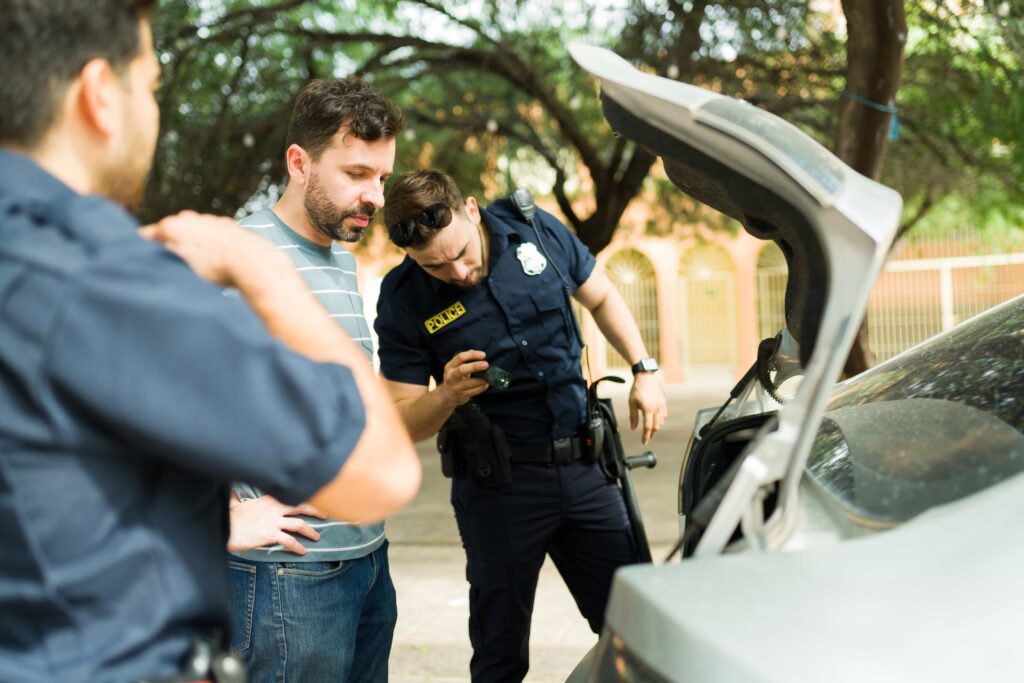If you’re facing a drug-related accusation, you may feel uncertain about your rights. Florida Search and Seizure Laws exist to protect people’s privacy and ensure law enforcement follows proper procedures. Knowing these laws can make a big difference in your case.
We’ll break them down so you can better understand where you stand and what to expect.
What Are Search and Seizure Laws?
Search and seizure laws regulate how police search your property or person and seize items as evidence. They are rooted in the Fourth Amendment of the U.S. Constitution, which protects people from unreasonable searches and seizures.
Florida also has its own set of rules that align with these federal protections.
Not all searches are illegal. For a search to be lawful, certain conditions must be met. Typically, police need to obtain a warrant.
A judge issues a warrant when there is enough evidence, or probable cause, suggesting a crime has been committed. Without a warrant, searches may still be lawful in some specific instances.
These exceptions can complicate the rules, but a basic understanding helps.
It’s also important to know that a search can include more than just your home or car.
Police can also search your phone, backpack, or even your body. Reasons that justify searches without a warrant vary but often include consent or visible evidence.
Key points about search and seizure
- The Fourth Amendment sets the foundation for these protections.
- Police typically need a warrant to conduct a search.
- Warrants require probable cause.
- Some situations allow warrantless searches.
Understanding these basics gives you a good starting point when assessing if your rights may have been violated during an investigation.
When Do Police Need a Warrant to Search?

Getting a warrant involves several steps. Officers must convince a judge they have enough evidence to support their request. This process ensures searches are not conducted arbitrarily, balancing the enforcement of laws and preserving people’s privacy.
Police usually need a warrant in these scenarios:
- Searching your home.
- Accessing private communications, such as emails or texts.
- Collecting evidence from locked storage, like safes or trunks.
However, exceptions to the warrant requirement exist. Emergencies, consent, and items in plain view often come into play. For example, if police see drugs sitting on your car seat during a traffic stop, they may not need a warrant to take them as evidence.
These exceptions are gray areas where disputes often arise. Whether a search was legal can depend on what happened at the scene, leading to different outcomes in court.
Typical Situations Requiring Warrants
- Searching private residences.
- Breaking into locked containers.
- Accessing phone or email data.
The warrant process is one of the key safeguards against unreasonable actions by law enforcement. It’s meant to ensure there’s objective evidence to justify their actions.
What Are the Exceptions to the Warrant Requirement?
Not all searches need a warrant. Florida law includes several exceptions where police can bypass the requirement. These situations often rely on immediate circumstances or voluntary actions by those being searched.
Common exceptions
- Consent: If you agree to a search, police don’t need a warrant. It’s critical to know this is voluntary, and you can refuse.
- Plain view: If officers see illegal items in plain sight, they may seize them without permission or a warrant. This applies to things visible from outside your home or car.
- Search incident to arrest: When you’re being arrested, police can search you and the immediate area around you.
- Exigent circumstances: This applies in emergencies where taking time to obtain a warrant could lead to harm or destruction of evidence.
Each of these exceptions has its own rules. Consent, for example, must be given freely and can’t be forced or implied. If police misuse these exceptions, it could violate your rights.
Knowing these laws helps you recognize if an exception was used fairly in your situation. If it wasn’t, it could influence how evidence is handled in court.
What Happens If a Search Violates Your Rights?

If police break the rules during a search, it doesn’t mean the case against you automatically disappears. However, it could weaken the prosecution’s position, especially if key evidence was obtained illegally.
The legal term for this is “suppression of evidence.” Judges have the power to exclude evidence gathered in violation of the law. This is known as the exclusionary rule.
Without the evidence, prosecutors may have difficulty building their case, opening the door to dismissal or reduced charges.
Steps to challenge a search
- Verify who conducted the search and document the circumstances.
- Determine whether officers had a warrant or relied on an exception.
- Consult a lawyer to evaluate if your rights were compromised.
- File a motion to suppress evidence, if applicable.
Judges review these motions and decide if the evidence will stand. They consider whether officers acted within Florida search and seizure laws. This process can dramatically change the direction of your case.
Knowing your rights is the first step toward protecting yourself when facing drug-related accusations. Missteps in searches can and do happen. When they occur, they provide opportunities to challenge the investigation against you.
What Can Make a Search Illegal?
A search is considered illegal if it does not follow the guidelines laid out in the Fourth Amendment. One of the biggest violations involves searches conducted without a warrant, when one is legally required.
If law enforcement bypasses this step, it may help your case. However, there are other ways searches can become illegal. For example, even with a search warrant, officers must respect its limits.
If the warrant indicates they can only search the garage, they cannot enter the rest of your house. Similarly, any search based on false information given to secure the warrant can be challenged.
Common Reasons Searches Are Deemed Illegal:
- Lack of probable cause for the search
- Exceeding the limits outlined in the warrant
- Conducting the search outside the permitted location or time
- Coercing someone into giving consent
- Searching without consent in a situation that requires it
If any of these occur, evidence collected during the search may be thrown out in court. This can weaken the prosecution's case significantly.
Can Evidence Ever Be Used From an Illegal Search?
Evidence obtained illegally is typically excluded under the exclusionary rule. This means the evidence cannot be used against you in court. But as with all legal matters, there are exceptions.
One major exception is called the “good faith” exception. If officers genuinely believed their actions were legal and followed proper procedures, that evidence might still be allowed. An example is when a judge makes a mistake in issuing a warrant but the officers didn’t know the error existed.
Other exceptions to the exclusionary rule
- Independent Discovery: If another source found the same evidence legally, it could still be used.
- Inevitable Discovery: If it can be shown that the evidence would have been found legally anyway, it may still be allowed.
- Attenuation Doctrine: If the connection between illegal police actions and the discovered evidence is remote or interrupted, the evidence might still hold up.
Whether or not these exceptions apply can be highly case-specific. Reviewing the details of how evidence was gathered is critical for defending against a drug charge.
What Rights Do You Have if Stopped and Searched in Public?

You might encounter a search away from your home. For example, officers may stop you on the street or pull you over in your car. Florida Search and Seizure Laws still protect your rights in these situations, but they might apply differently than they do in your private space.
Traffic stops and searches
When you are stopped while driving, police need reasonable suspicion to pull you over. If they want to search your car, they generally need probable cause. This could include the sight of illegal substances in plain view or the smell of marijuana.
However, there are limits:
- Police cannot search your glove compartment or trunk without permission unless probable cause exists.
- Without probable cause, they will need a warrant.
- Refusing a search does not give them the right to search.
Being stopped on the street
If stopped on the street, officers may conduct a pat-down search if they suspect you are armed and dangerous. They cannot go through your pockets unless they feel an object that could be a weapon. General curiosity is not enough; they must have a valid reason.
Always ask if you are free to go. If the officer does not have probable cause to detain you, they cannot hold you without your consent.
What Should You Do if Your Rights Are Violated?

If you believe your rights under Florida Search and Seizure Laws have been violated, do not resist now. Resisting could escalate the situation and potentially lead to additional charges.
Instead, use these steps to protect yourself:
Steps to protect your right to defense:
- Remain calm: Do not argue or physically resist the officers. Stay polite but firm.
- Document everything: Write down what happened as soon as possible, including the time, location, and what was said.
- Collect witness information: If others witnessed the incident, ask for their names and contact information.
- Do not admit anything: You are not required to explain anything to the officers.
- Contact an attorney: Inform a skilled criminal defense lawyer immediately so they can review your case.
Taking these steps ensures you focus on your defense instead of letting emotions influence your actions.
Additional rights during drug investigations
Police often overstep boundaries during drug crime investigations. Knowing all your rights can help you avoid falling into legal traps. Beyond search and seizure rules, you also have the right to remain silent.
Anything you say to officers can and will be used against you. Do not guess or offer explanations for your behavior unless you have a legal advisor present.
- You have the right to refuse consent for any search unless presented with a warrant.
- You have the right to ask for an attorney before answering any questions.
- You are entitled to see a copy of the search warrant if one is presented.
Exercising these rights does not make you look guilty. It simply ensures that you are protected under the law.
Partner with a Dedicated Legal Professional
If you’re facing a drug-related charge in Florida, having the right legal support can make all the difference. Police errors in searches occur more often than many realize, and they can change the outcome of your case.
At Rossen Law Firm, we focus on protecting your rights and ensuring you get the strongest defense possible. Call us today at (754) 206-6200 for a consultation.